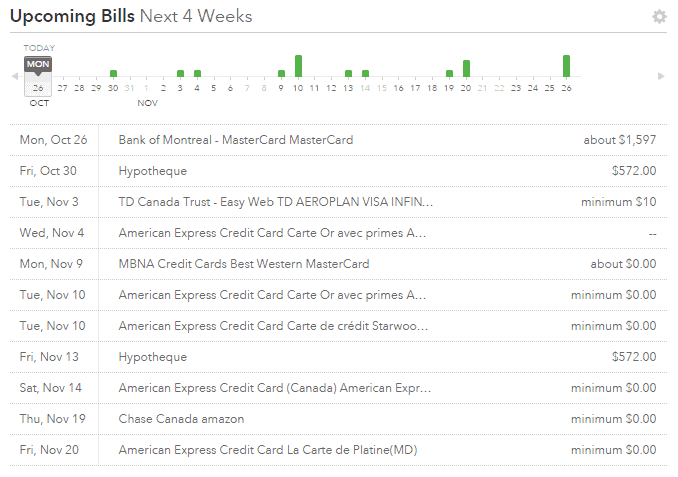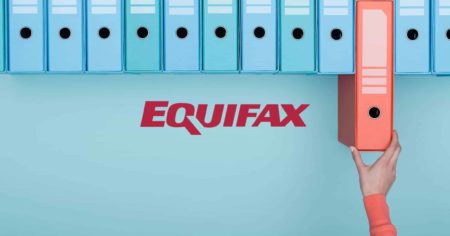
How to improve your credit score
Checking your credit report is very important: everyone should do it at least once a year.
You can check your credit score with the two major agencies:
The majority of cards companies consult your Equifax file (National Bank, CIBC, TD, etc.). For others, like American Express or MBNA, TransUnion is used more often than not.
Know that you have the right to request to receive, free of charge, every year, a summary of your credit report by mail. For a few weeks now, you can even consult this report online on Transunion’s website.
However, to get the score, you will have to pay ($15-20). This subscription is worth it.
An active credit report
Paying only using a debit card and not owning any credit card is counterproductive in order to get a good credit score!
Les Affaires recommends holding at least two different credit instruments such as a credit card, a line of credit or a mortgage… but does not recommend holding more than 7.
The credit report of a point hoarder
When you’re just starting with the points system, it is extremely important to have a good credit report.
I currently hold many, many credit (and charge) cards:
What’s the difference between a credit card and a payment card?
- The balance of a credit card can be postponed from month to month (in compensation for an interest of 15-25%…)
- The balance of the payment card must be imperatively paid every month.
This difference means that payment cards have less of an impact on your credit score than credit cards!
In addition to these cards, I have a mortgage.
Yet despite all these active cards, my credit score (for a file not even 5 years old unlike most Canadians) fluctuates between 700 and 750 (rated “very good”).
Tips for maintaining a good credit score
Why do I have a good score? I respect to the letter the advice given by Les Affaires. And I add more!
I keep away from the limits
I never exceed 25-30% of what my card allows me to spend. Often, when I have taken advantage of the subscription bonus, I leave my card in a drawer with a $0 balance.
As Les Affaires points out, if we regularly exceed 50% of the authorized limit, it will impact our score!
I meet my deadlines
I scrupulously respect my deadlines by paying every month before the deadline. One late payment, and your file is severely impacted!
To keep track of all the deadlines (about 15 per month…), I set email alerts for myself (all credit companies offer this service) AND I manage my accounts using a free manager like Mint.com, which also reminds me of upcoming deadlines on a calendar.

Be mindful of your bills for services such as your cell phone or your Bell/Videotron subscription: these services also show up on your credit report and can impact it if you go overdue by only 24 hours!
I get ahead of my statements
This is a trick to “increase” my score quickly: I pay my card balance in advance, every 2-3 months, without waiting for the statement to be issued. It will then show up at $0!
Equifax and the credit companies will see that I “use” my cards on a regular basis, and on top of that I am an excellent managerbecause I regularly pay in advance! I was able to see my score skyrocket thanks to this technique.
I keep credit lines open
The Les Affaires newspaper does not mention this. However, this is a very important point: to get a good score, it is necessary to have one or two credit cards that will follow you for several years without being closed! These cards will help “inflate” your credit history.
I don't ask for cards before a mortgage appointment
Important point: the application for a new credit card will appear on your file and will make you lose some points… points that you will recover very quickly (2-3 months approximately).
But if you have a real estate project in mind with an imminent mortgage loan application,I advise you not to take out several credit cards at the same time. Wait until your loan application is approved before you (re)embark on the adventure of credit card loyalty programs!
I'm not asking for "superfluous" cards
If a card doesn’t give me a significant advantage, I don’t request it. There’s no point in cluttering up my wallet – or my drawer – with a card I don’t need. I am thinking about those that department stores can offer you or that you receive in the mail.
The impact cards applications have on your score
Yes, asking for cards has an impact. However, if you follow all of the above tips to the letter, you will quickly recover the “lost points”.
To give you an idea: at the beginning of August 2018 after my credit score was 754, I subscribed to 5 credit & payment cards. This made me lose 29 points (754 → 725). I returned to 750 in November 2018.
As I often say: it’s not so much the requests for new cards that impact your score… but rather the way you manage your credit !
However, keep in mind how your credit score is calculated:
Punctuality: 35%.
35% of your credit score comes from your payment history to pay your balances on time. It will tell lenders if you are a good borrower or not.
If you want to increase your credit score, pay each of your credit card balances in advance without waiting for the credit card statement.
Usage: 30% of the total
30% of your credit score comes from your monthly credit utilization granted by different lenders (mortgage, line of credit, credit cards, etc.)
Example:
- Monthly, you use $2,500 of your available credit, consisting of a single credit card with a $5,000 credit limit. Your credit utilization rate is 50%.
- Now, you have two credit cards with a $5,000 credit limit on each, and you still use $2,500 of your total credit limit. Your credit utilization rate will drop to 25%.
We recommend you to keep a credit utilization rate of less than 30%.
History: 15% of the total
15% of your credit score comes from your credit history in Canada for all your credit lines (credit cards, mortgage, auto loans, student loans, etc.).
An average is calculated to establish this score. Thus, we recommend you to keep an “old” credit card active to boost your average.
Types of credit: 10% of the total
10% of your credit score comes from a credit diversification (mortgage, line of credit, credit cards, etc.)
Lenders are reassured when you demonstrate the strict management of your finances. The more different types of credit you have (properly repaid each month), the better your credit score will be.
New requests: 10% of the total
10% of your credit score comes from your new credit inquiries (credit cards, loans, etc.). Each time you make a credit inquiry, your credit score will be affected, and a few points will be lost.
These points are usually recovered in a few months if you follow the above guidelines (including punctuality and credit utilization rate).






